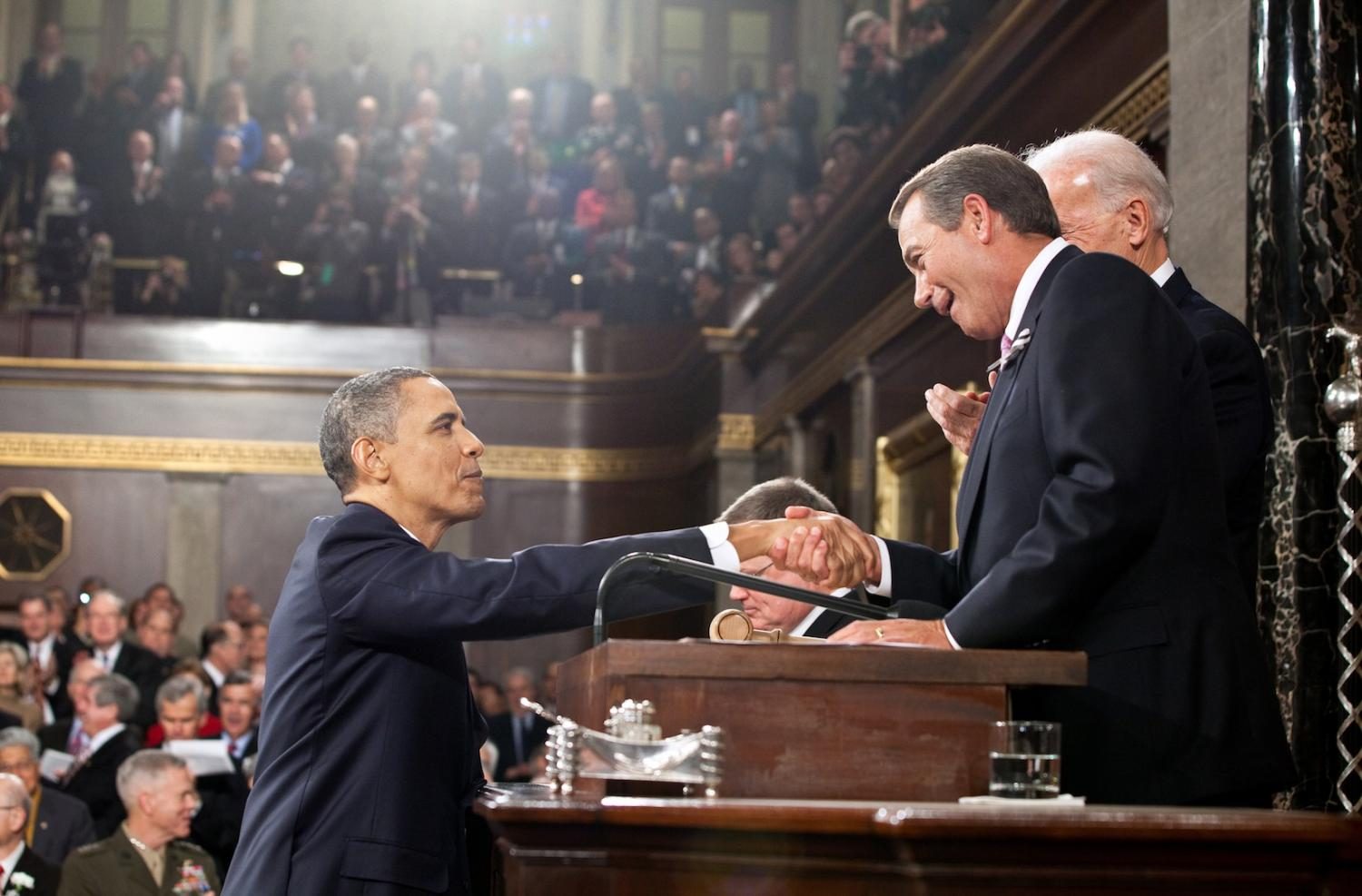Why This Debt Crisis is Taxing Our Patience
7/Obama_Boehner_State_of_the_Union_2011-1024×673.jpg” alt=”” width=”575″ height=”377″ />Three weeks ago two Republican leaders walked out on negotiations to raise the debt ceiling. After a multitude of spending concessions totaling in the trillions of dollars in cuts from Democratic leaders, the straw that broke the camel’s back, according to Republicans, was revenue raising taxes to millionaires. House Majority leader Eric Cantor and Senator Jon Kyl would just not stand for closing tax loopholes to those making more than $500,000, tax breaks for corporate jets and actual millionaires, and subsidies for big oil companies. Bottom line their defection was one of principle: absolutely no revenue raising taxes are allowed as part of a deficit reduction package.
The economic logic, though, is simple. Deficit reduction should be a two-pronged process: first cut spending, then create new revenue. On paper it seems to be a sensible plan, saying when you’ve spent more money than you have, first you must stop spending and then you must make money or generate revenue to cover earlier transgressions. And previous to the current political dead end at which the nation has found itself that logic worked pretty well. Recently, however, Republican refusal to raise taxes has become more than just obedient adherence to the party platform; it has become an irrational hardheadedness that has derailed not only debt ceiling negotiations, but also budget and deficit reduction proceedings.
Republicans asert that tax hikes would hinder job growth, or more specifically they would negatively affect “job creators,” As Speaker Boehner explains:
What some are suggesting is that we take this money from people who would invest in our economy and create jobs and give it to the government. The fact is you can’t tax the very people that we expect to invest in the economy and create jobs.
The problem with this central claim is the fact that all evidence refutes it. In actuality a study by the Center for American Progress found that in the past 60 years, job growth has actually been greater in years when the top income tax rate was much higher than it is now. Which disproves the Republican belief of a strong correlation between lower tax rates and job growth; yet Republicans continue to highlight lower taxes as part of a greater plan for job growth and economic health, having used the same argument to renew the Bush tax cuts. Although empirical and historical data has proven otherwise, more and more Republicans have come out in opposition to any tax hikes whatsoever, with a majority of House Republicans having recently signed President of Americans for Tax Reform Grover Norquist’s most recent pledge promising not to vote in favor of any tax increases. Economic logic does not matter to the current reincarnation of the Republican party; what does matter are votes and because Tea Party exuberance greatly aided the Republican party in the last election cycle, the party has ideologically acquiesced to fringe, anti-government illogical stances.
For proof that their current conduct is something more extreme than just regular Republican politics, look no further than Republican legend Ronald Reagan. Ronald Reagan, a man thought of as the purest embodiment of the modern Republican, raised taxes 7 of the 8 years that he was president. In addition, in 1982 his administration began enacting a series of tax increases (the largest ever in peacetime) meant to reduce the deficit. Why did he do so? Because it was economically necessary at the time, because he too felt the deficit was an impediment to growth that needed to be dealt with. The difference between then and now is that he was able to set aside party dogma in dealing with a problem he had identified. And as the policy blog ThinkProgress notes those tax increases did not hinder overall economic growth or job growth, as in the proceeding years the economy grew and unemployment shrank. Not to mention this process of increasing taxes was repeated again during Clinton’s presidency to equally successful results.
Yet in spite of all of this Republicans refuse to even budge on the terms, and so all spending cuts are welcome, but absolutely no revenue raises are allowed. It’s true these proposed extreme spending cuts will have a contractionary effect on our still-recovering economy. But more importantly, this line set in the sand means that, as of now, the debt ceiling has yet to be raised and default is still an option Republicans consider feasible. America has never defaulted on its obligations and as economist Austan Goolsbee noted, this would be “the first default in history caused purely by insanity.” Though the American people empowered Republicans to lead last fall, their reckless usage of that power endangers not only the party, but also the nation.
Photo via Wikimedia Commons.












